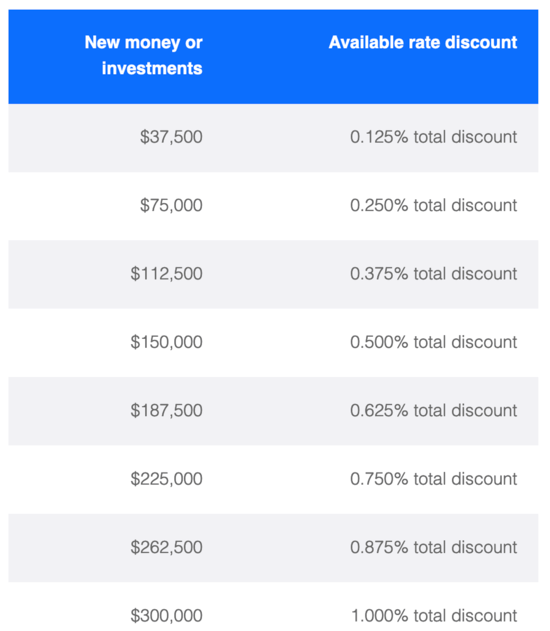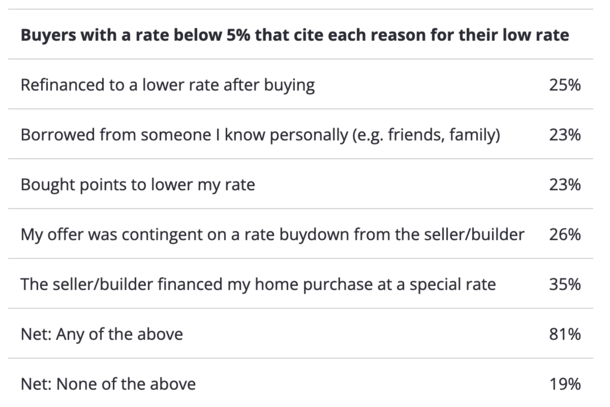Enjoy complimentary access to top ideas and insights — selected by our editors. The November election will determine a new presidency, the makeup in Congress and in turn, mortgage, real estate and housing policies. Vice President Harris has pushed two major housing proposals, including building 3 million homes in a four-year period. Development would be spurred by, among other means, a tax incentive for home builders who sell their units to first-time homebuyers. The Harris-Walz ticket also pledges a $40 billion "innovation fund" for local governments to cut red tape in affordable housing development.The other major Harris pitch is $25,000 in down payment assistance for first-time homebuyers. The campaign said the assistance would aid over 4 million first-time home buyers over a four-year period. Harris also supports Democrat-backed legislation to curb tax benefits for investors who acquire 50 or more single-family rental homes. Bill Killmer, senior vice president for legislative and political affairs at the Mortgage Bankers Association, said the MBA has received outreach from Capitol Hill voices who want to beef up Harris' proposals."This is a marathon, not a sprint, so I don't think anybody should be counting on immediate relief," Killmer told National Mortgage News' Andrew Martinez. "It took us years to get into this supply deficit for all the reasons that's happened, and it'll take long-time, consistent, incremental efforts to get us out of it."Former President Trump hasn't commented on GSE reform, but his former associates said exiting conservatorship would be a priority. Mark Calabria, who was Federal Housing Finance Agency director under Trump, says privatization could be achieved in 2026 or 2027 under GOP rule.The GOP ticket has called for more executive influence with the Federal Reserve regarding interest rates. Analysts explained it would be difficult for Trump to force his way into such decisions, and pointed out the president already holds some sway via Board of Governors appointments. Executive influence on interest rates could also have spillover effects on the broader economy, experts said.Read more: Republican bill would put housing agencies on shorter leash The Federal Reserve and its policies have been a hot button issue for the mortgage industry.As was long awaited, the Fed moved to cut rates in September by 50 basis points. And though it did not cause as much of a refinance wave as some may have hoped, it did fuel further hope of another rate cut to follow.In a survey conducted by Arizent, the parent company of National Mortgage News, the majority (53%) of mortgage professionals said the cut will not have any bearing on the outcome of the 2024 presidential election. Closely behind is 43% of respondents who think the cut benefits Harris' chance of being elected, while only 7% say it's an advantage to Trump in the elections.Mortgage professionals weighed in on the political influence held over the Fed. Fully 79% of respondents say the Fed takes political considerations into account when setting monetary policy, while only 15% don't agree.Opinions differ on how the Fed's autonomy will be impacted by a new administration.Forty-three percent of those surveyed said that the Fed, which operates independently from the executive branch, will be curtailed under a Trump presidency. Meanwhile, about 50% said the Fed's independence won't change at all if the election is won by Harris in November.Read more: Election season, economic power drive latest interest rate volatility Read more about how the election will impact the mortgage industry. Survey reveals mortgage professionals' thoughts on electionAs the election approaches, mortgage professionals are clearly leaning towards one candidate over the other in terms of which could best help their industry.The majority of respondents to a survey by Arizent, the parent company of National Mortgage News, said they were unhappy with the current political climate. Out of 98 respondents — including those that work in the mortgage world in the capacity of executives, management to staff — 92% said they are dissatisfied with the current political climate and only 7% said they are satisfied. Additionally, the majority, 58% of those surveyed, say the shift of the Democratic candidate from President Biden to Harris did not change expectations for how a Democratic White House would affect the mortgage industry.Read more: Mortgage professionals sound off on elections, Federal Reserve lazyllama - stock.adobe.com How real estate could change post electionThe upcoming election has implications for several game-changing policies that could affect companies that lend on income-producing properties and housing.As of October 21, the presidential race and the composition of Congress were still largely a toss-up, meaning outcomes where power could be divided between the parties are possible, causing the Commercial Real Estate Finance Council to engage in projections for a range of election scenarios that could create a need for compromise. The council plans to update its analysis over time.Read more to find out what's at stake for key policies in different scenarios, based on comments from David McCarthy, managing director, chief lobbyist and head of legislative affairs at the Commercial Real Estate Finance Council, and an analysis he co-authored with Sairah Burki, managing director and head of regulatory affairs, and James Montfort, manager of government relations. An Oct. 7 Cook Political report informed the original study.Read more: What different election scenarios mean for real estate witsarut - stock.adobe.com All about the mortgage industry's spending on lobbying in 2024Mortgage-industry participants — including influential trade groups, insurance companies and lenders — spent $6.7 million on lobbying this year, a decrease from $12 million in 2022. The 2024 figures are based on Federal Election Commission data released on Sept. 22, 2024.The Mortgage Bankers Association, the Council of Federal Home Loan Banks, Federal Home Loan Bank, Housing Policy Council, and Pennymac were the top spenders on advocacy this year.Mortgage lenders and servicers including United Wholesale Mortgage, NewDay USA, Mr. Cooper, Veterans United Home Loans and Freedom Mortgage also funded advocacy efforts this year. Among these companies, Pennymac, Veterans United Home Loans and NewDay USA were the top spenders on lobbying, doling out $290,000, $220,000 and $220,000, respectively. Two years prior, Veterans United and NewDay spent $460,000 and $600,000 in lobbying efforts.Read more: Here's how much the mortgage industry spent on lobbying in 2024 Everything to know about the 2024 election as a mortgage professionalPresidential candidates Kamala Harris and Donald Trump have offered their unique visions on how to relieve the strains on the nation's housing market. While analysts have questioned the viability of each candidate's proposals, industry veterans are pleased with their focus this election cycle."The unfortunate reality is we've got a crisis, so that's why it's being discussed," Bill Killmer, senior vice president for legislative and political affairs at the Mortgage Bankers Association, told National Mortgage News' Andrew Martinez. "But we're pretty happy that policymakers in Congress and both of the major party candidates running for president are talking about housing."Vice President Harris is proposing an ambitious construction goal and more assistance for first-time homebuyers. Former President Trump has called for greater influence on interest rates and freeing up federal lands for home construction, while conservatives mull larger goals for his second term. A consequential tax debate next year also weighs on the battle for Congress.Read more: The mortgage professional's guide for the 2024 election Business survey reveals how real estate investors plan to voteThe majority of real estate investors forecasted a Kamala Harris victory in November, with the vice president grabbing a 51.4% share, according to a new quarterly business sentiment survey from RCN Capital and CJ Patrick Co. Another 40.5% backed former President Donald Trump. The remainder favored Robert F. Kennedy Jr., an independent candidate who has since withdrawn from the race.In expressing their views on who might create the better business environment for investors, Harris, again, came out on top among 47.2% of the segment, compared to 39.2% for former President Trump."It could be that investors are optimistic about the Harris campaign's initiatives focused on strengthening the housing market overall, and believe that those policies might benefit investors, tenants and homebuyers alike," CJ Patrick CEO Rick Sharga said in a press release.Read more: How real estate investors plan to vote in the U.S. election VP debate brings discussion on housingMinnesota Gov. Tim Walz and Sen. JD Vance, R-Ohio, disagreed on the root causes of the high cost of housing in the vice presidential debate on October 1. Walz repeatedly pressed the idea that housing should be seen as more than a commodity. "A house is more than just an asset," he said. Vance repeatedly pinned economic issues, such as inflation, on the policies of the Biden administration and on Harris' role within that administration."If she wants to enact all of these policies to make housing more affordable, I invite her to use the office that the American people already gave her, not sit around and campaign and do nothing while Americans find the American dream of homeownership completely unaffordable," the senator said.Read more: 'A house is more than just an asset': Walz and Vance clash in VP debate Bangkok, Thailand - October 3, 2015 : Water flood village in Don Mueang district. Problem with the drainage system.pongmoji - stock.adobe.com FHFA report could lead to flood insurance complianceAn inspector general audit found the Federal Housing Finance Agency's flood insurance oversight for influential government-related mortgage investors was effective but not applied regularly enough and lacked some formal procedures, and that could have implications for how the next administration handles the issue of flood insuranceThe government watchdog's report could bring more constant scrutiny to the many depository and nonbank lenders and servicers that work with the enterprises because private mortgage firms ultimately are responsible for flood insurance compliance, an area bank regulators have been watching closely too. "Examination procedures were inconsistent for assessing enterprises' oversight of seller/servicers' compliance with flood insurance requirements," the Office of Inspector General said in a report on the FHFA's Department of Enterprise Regulation released Thursday.Read more: Will FHFA IG's report lead to a flood insurance crackdown?


